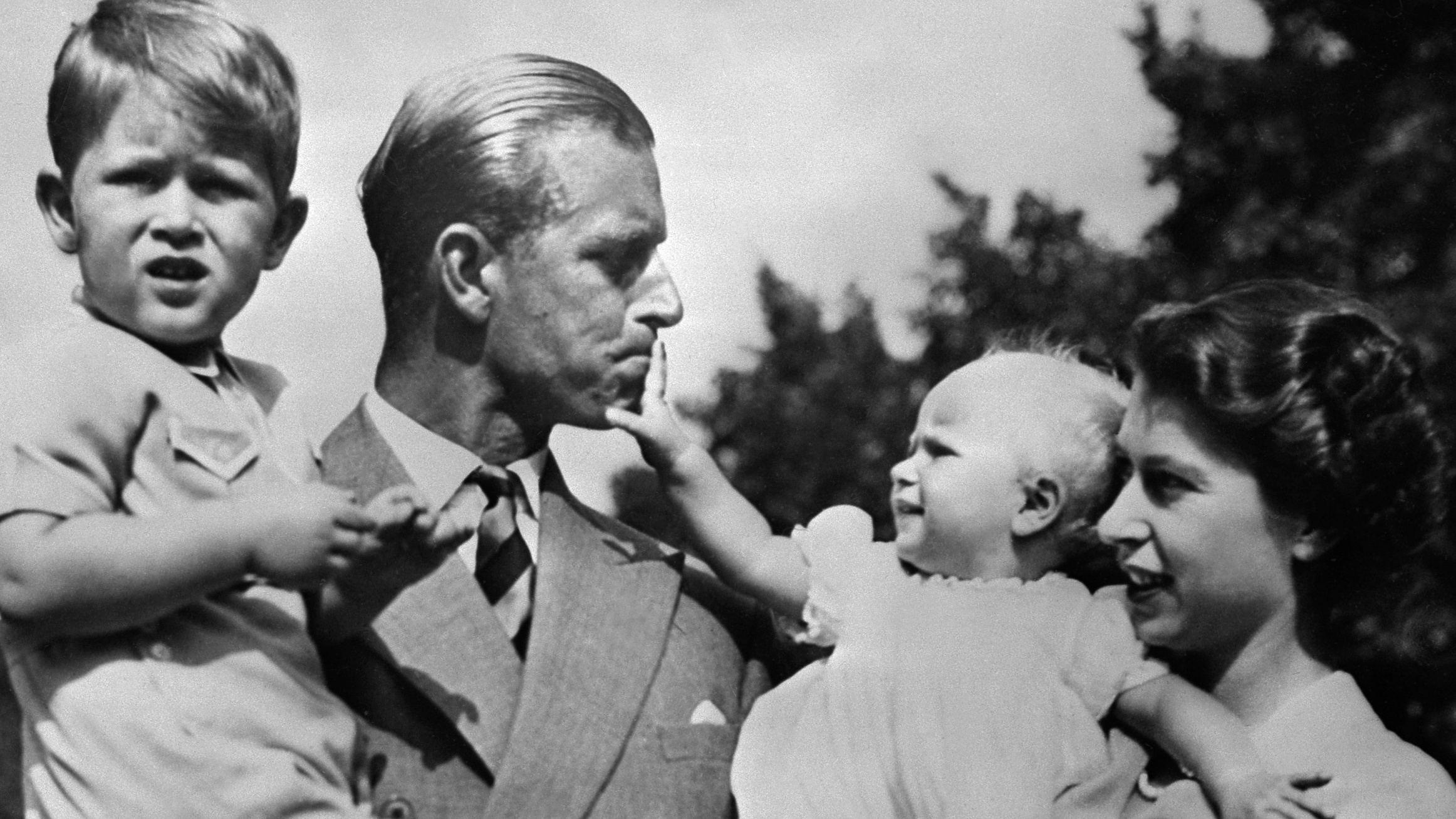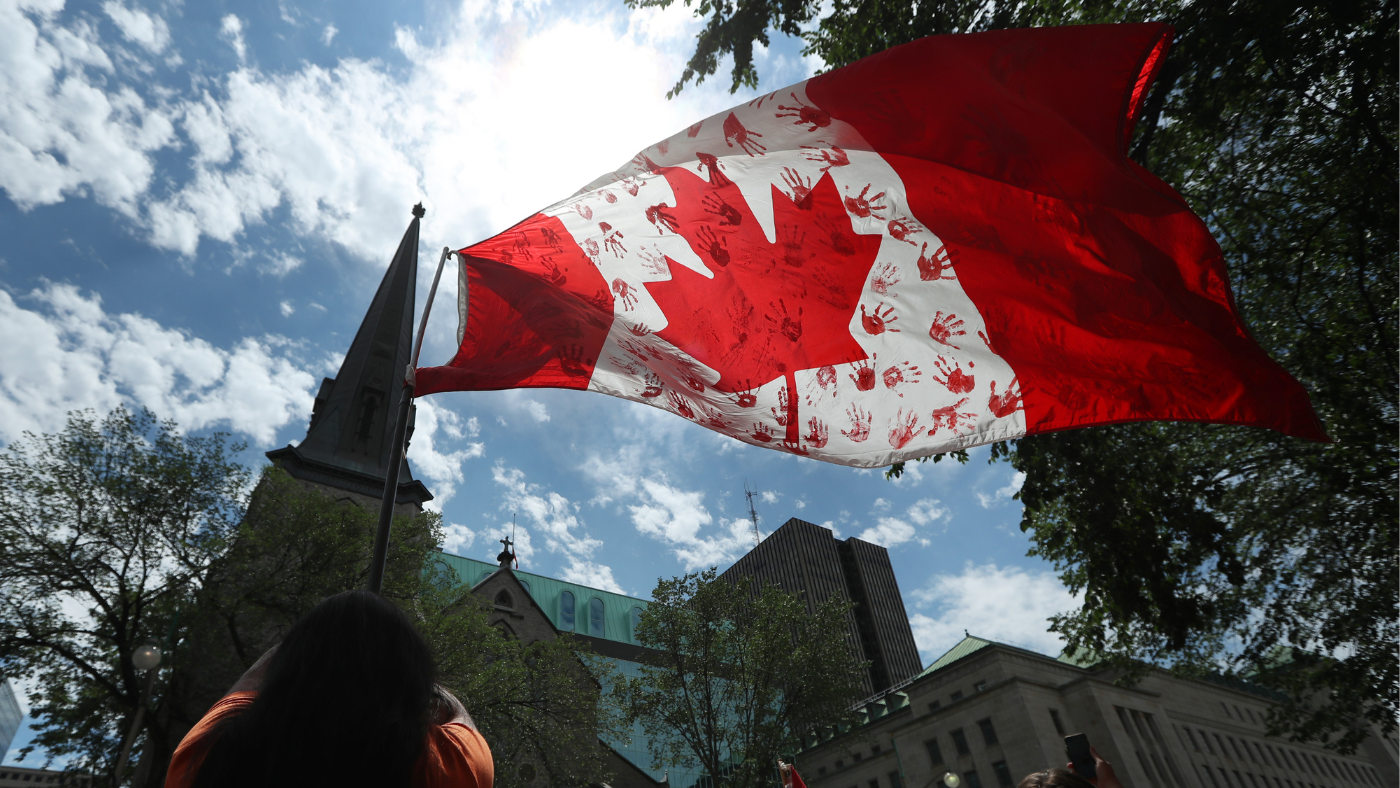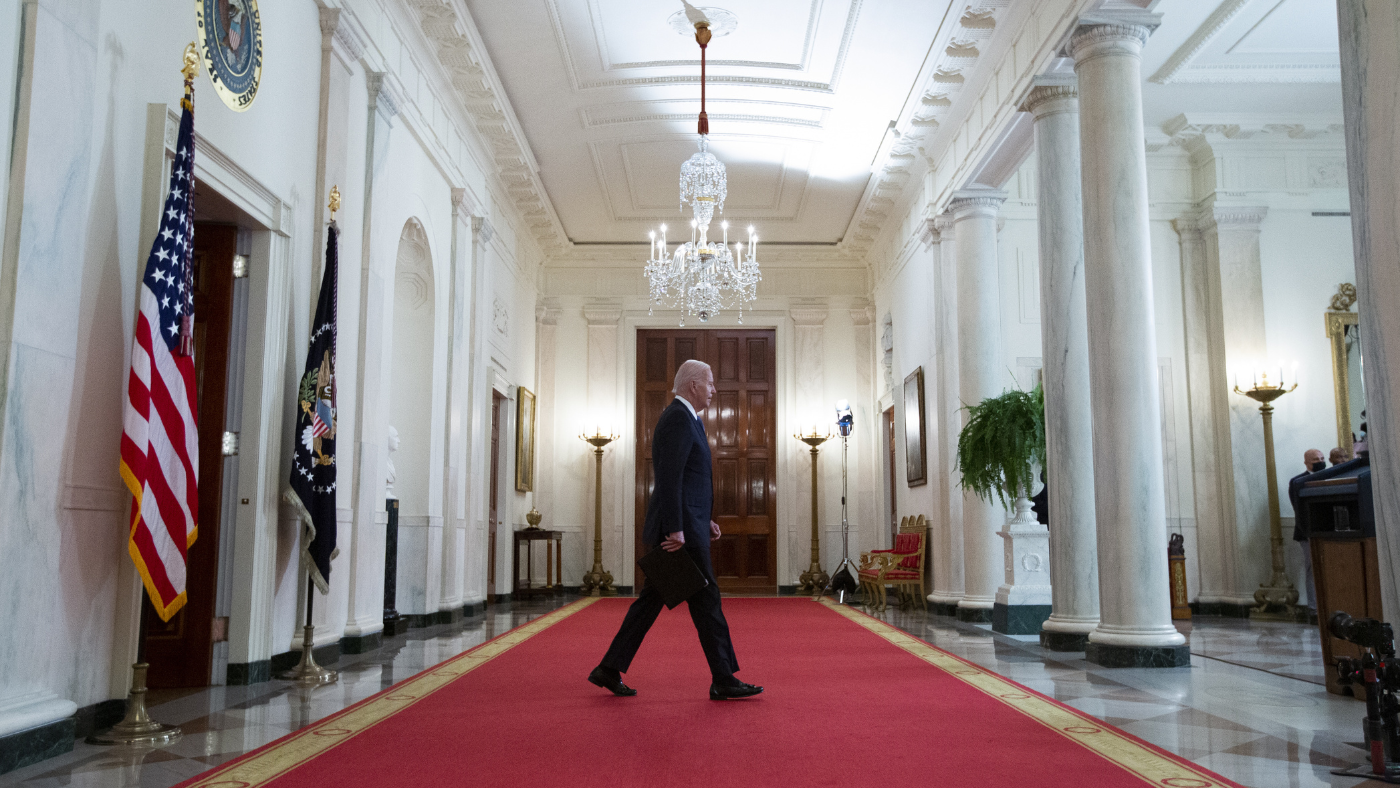‘The assumptions of postwar politics are crumbling’
Your digest of analysis and commentary from the British and international press

- 1. Certainties of the postwar world are ending
- 2. Brexit isn’t the cause of the Belfast riots – but it is harming political reconciliation
- 3. How the Greensill scandal has become more dangerous for the Conservatives
- 4. Will Boris the liberal ever return?
- 5. The domino effect of working from home could be disastrous
A free daily email with the biggest news stories of the day – and the best features from TheWeek.com
You are now subscribed
Your newsletter sign-up was successful
1. Certainties of the postwar world are ending
Daniel Finkelstein in The Times
on a post-Covid world
The death of Prince Philip is a reminder we are “coming to the end of the postwar era and are entering the post-postwar world”, writes Daniel Finkelstein in The Times. “The assumptions of postwar politics are crumbling,” he says. As a description, “postwar” denoted the world order and was synonymous with modernity, but these are “no longer universal assumptions”, writes Finkelstein. “In particular they are not the assumptions of new generations of voters.” There are examples of this, “big and small”. Firstly, “American power” and the country’s “status as a success story that demanded emulation” is “much more widely questioned”. As the Cold War recedes in memory too, those “wishing to associate capitalism with prosperity and freedom” are no longer able to “rely on the immediate postwar experience of communism to make the argument for them”, says the writer. “All these changes mean that it no longer makes sense to talk with ease about our era as postwar,” he adds. “Maybe we need a new term. Post-Covid?”
The Week
Escape your echo chamber. Get the facts behind the news, plus analysis from multiple perspectives.

Sign up for The Week's Free Newsletters
From our morning news briefing to a weekly Good News Newsletter, get the best of The Week delivered directly to your inbox.
From our morning news briefing to a weekly Good News Newsletter, get the best of The Week delivered directly to your inbox.
2. Brexit isn’t the cause of the Belfast riots – but it is harming political reconciliation
Matthew O’Toole in The Guardian
on Northern Ireland violence
“Contrary to some excitable hot takes, Belfast is not in flames, nor are the riots all about Brexit,” writes Matthew O’Toole in The Guardian. “But what has happened is contextualised by Brexit and the sharpening of sovereignty that is demanded by that project,” says O’Toole. “Brexit is the opposite of reconciliation: it means standing apart rather than coming together, asserting distinctiveness over finding common ground.” And for those who “still question the damage that the UK leaving the EU has done to the architecture of the Northern Ireland settlement” just “look at the difficulty the two governments now have in simply agreeing to convene a formal meeting to discuss what is happening in Northern Ireland,” he adds. “For more than four decades, the margins of European council meetings offered a place for UK and Irish ministers to engage without formality and pressure. Not any more.”
A free daily email with the biggest news stories of the day – and the best features from TheWeek.com
3. How the Greensill scandal has become more dangerous for the Conservatives
Stephen Bush in the New Statesman
on Conservative conduct
The Greensill affair is in danger of turning from a story “about a former prime minister’s texts to one about how a government that has been in power for more than a decade conducts itself”, writes Stephen Bush in the New Statesman. After all, “Boris Johnson’s biggest political success since becoming Tory leader has been in imbuing his party with the impression that it is fresh and different: that this isn’t an 11-year-old government,” he writes. However, “a scandal stretching right across the lifetime of the Conservative government may well be more damaging than one that implicates ministers in the present day.”
4. Will Boris the liberal ever return?
Nick Tyrone in The Spectator
on Johnson's liberal instincts
“As Prime Minister, Boris’s liberal side has barely reared its head,” writes Nick Tyrone in The Spectator. “Of course, a big reason for this is the pandemic”, writes Tyrone, which has required “big government with a slight authoritarian bent.” “But when Covid finally goes away, can carefree Boris make a comeback?”, he asks. It seems likely “we will soon reach a point – and it’s probably not far off – when the libertarian wing of the Conservative party comes to the end of its patience with authoritarian measures that seem increasingly harsh against the background of low and falling infection rates”, says Tyrone. Johnson’s popularity “relies on his ability to move us on from this crisis and back to some semblance of normal”. It’s time for Johnson to look back on his two-term career as Mayor of London, a man who then “understood how to balance liberalism and statism to create a winning formula”.
5. The domino effect of working from home could be disastrous
Jonathan Saxty in The Telegraph
on the work-from-home revolution
“The shock therapy of the work-from-home revolution could destroy any hope of a great economic comeback”, writes Jonathan Saxy in The Telegraph. “If millions of us remain reluctant to flood back into workplaces and urban areas, the impact could be catastrophic for sectors banking on commuters and consumers returning in large numbers,” he writes. “The Government may now be panicking about this domino effect. Eased in gently, working from home could be a very good thing. But brought in overnight – and without mitigating strategies in place – it could be devastating.” But with home working, “the genie” may already “be out of the bottle,”, Saxy writes. “If so, we need to get real about the ramifications of such a massive cultural shift.”
-
 What to know before filing your own taxes for the first time
What to know before filing your own taxes for the first timethe explainer Tackle this financial milestone with confidence
-
 The biggest box office flops of the 21st century
The biggest box office flops of the 21st centuryin depth Unnecessary remakes and turgid, expensive CGI-fests highlight this list of these most notorious box-office losers
-
 What are the best investments for beginners?
What are the best investments for beginners?The Explainer Stocks and ETFs and bonds, oh my
-
 Roman-era Brits kept lap dogs
Roman-era Brits kept lap dogsfeature And other stories from the stranger side of life
-
 Boris Johnson shocks UK by resigning from Parliament
Boris Johnson shocks UK by resigning from ParliamentSpeed Read
-
 Bees delay flight for three hours
Bees delay flight for three hoursfeature And other stories from the stranger side of life
-
 ‘The UK’s malaise will not end with the Prime Minister’s exit’
‘The UK’s malaise will not end with the Prime Minister’s exit’Instant Opinion Your digest of analysis from the British and international press
-
 ‘Police tactics are not getting worse, they are simply being filmed’
‘Police tactics are not getting worse, they are simply being filmed’Instant Opinion Your digest of analysis from the British and international press
-
 ‘G7 leaders missed a golden opportunity’
‘G7 leaders missed a golden opportunity’Instant Opinion Your digest of analysis from the British and international press
-
 ‘It takes some soul searching to celebrate Canada Day’
‘It takes some soul searching to celebrate Canada Day’Instant Opinion Your digest of analysis from the British and international press
-
 ‘Breakthrough on abortion rights could be there if Biden reaches for it’
‘Breakthrough on abortion rights could be there if Biden reaches for it’Instant Opinion Your digest of analysis from the British and international press